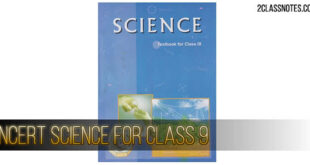Question: What method of irrigation will you use if you live in a dry area with shortage of water? Explain the method.
Answer: Drip irrigation is the method of irrigation useful for dry areas which have a shortage of water. In this method, water is. Water is allowed to fall drop by drop from a pipe placed near the roots of plant.
Question: What is water logging? How does it harm the crops? How can it be prevented?
Answer: When an excess of water is supplied to the field it is called water logging. As a result of this, the air supply to the roots reduces and in extreme cases, gets totally cut off. This results in the retarded growth of plants. Water logging can be prevented by supplying just the adequate amount of water to the field using a proper drainage system.
Question: Discuss two methods of weeding in which poisonous chemicals are not used.
Answer: The two methods of weeding in which chemicals are not used are:
Manual method: Weeds are pulled out by hand or uprooted using a trowel or a harrow.
Introducing Insect: Insects that feed upon only specific weeds are used control weeds.
Question: Differentiate between insecticides, rodenticides and fungicides. Which of these are pesticides?
Answer: Insecticides are chemicals used to kill insects like locusts. Rodenticides are chemicals used to kill rodents like rats and Fungicides are chemicals used to destroy fungi.
Insects, rodents and fungi are pests. So insecticides, rodenticides and fungicides are all pesticides.
Question: Discuss with an example how hybridization is used for developing new varieties of crops with desired characteristics.
Answer: Hybridization method of obtaining new variety of desirable traits by cross breeding two different varieties of crops for example if two varieties of crops, one with high yield and other with disease resistance, can be crossbred to obtain a variety that has both the traits, i.e., high yield and disease resistance.
Question: Differentiate between nitrification and denitrification.
Answer: Nitrification is the process of conversion of ammonia into nitrates. It is carried out by nitrifying bacteria.
Denitrification is the process of conversion of nitrates into free nitrogen gas. It is carried out by denitrifying bacteria.
 Class Notes NCERT Solutions for CBSE Students
Class Notes NCERT Solutions for CBSE Students




its really helpful for student nice idea… thanks 2classnotes
Great Question & Answers for students like me. Thanks 2Classnotes!